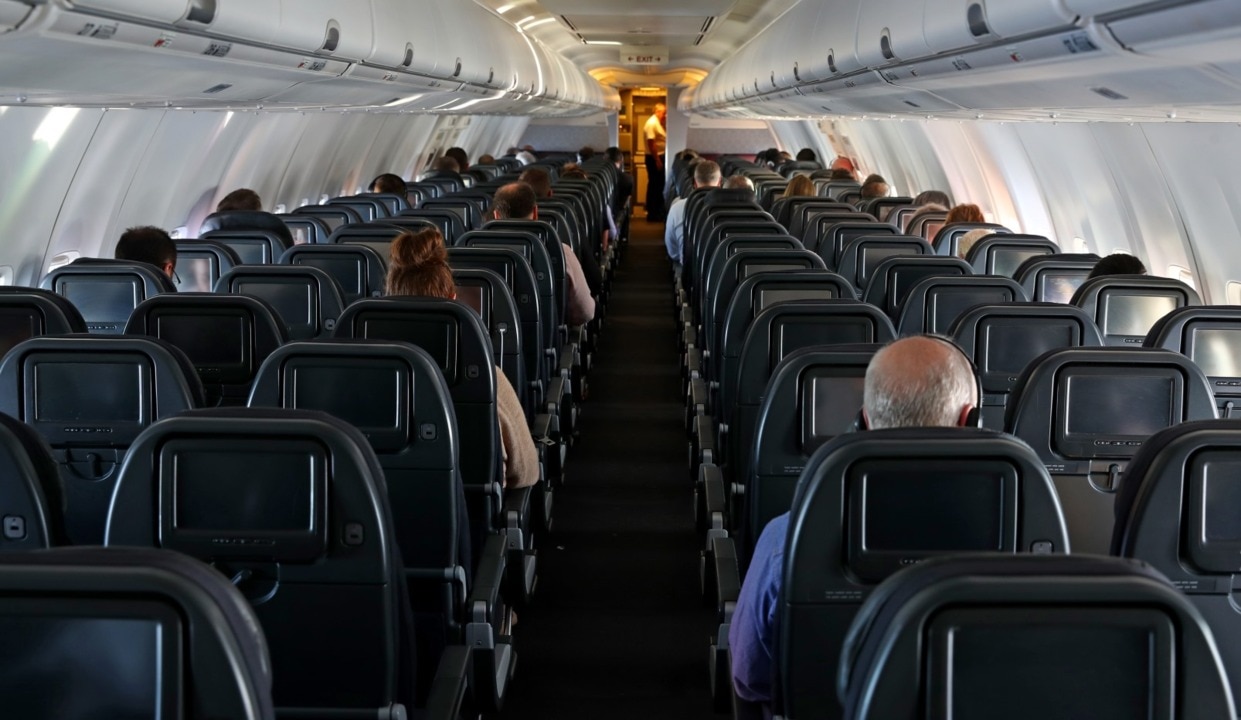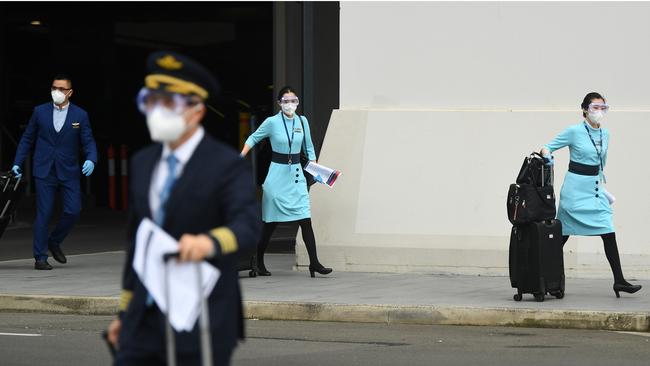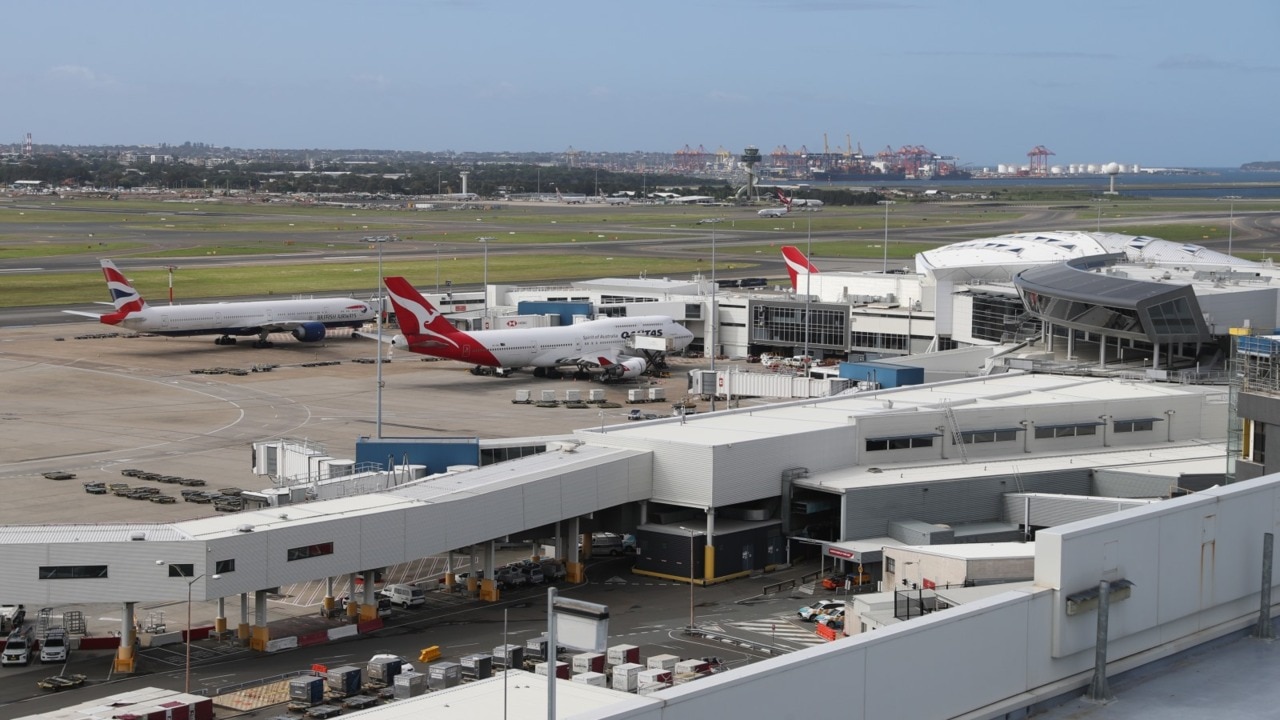NSW Health flags national approach to quarantining international airline crews
The NSW government is pushing for a national approach to the quarantining of international flight crews, as questions are raised over glaring loophole.
The NSW government is pushing for a national approach to the quarantining of international flight crews, amid apparent resistance from airlines over Covid protocols.
NSW Health Minister Brad Hazzard said some airlines had indicated “they were not interested in coming to NSW any more” after stricter rules to protect the community were flagged.
Under current rules, international flight crews are required to self-isolate for 24 to 72 hours, and can do so at home.
But some states yesterday moved to tighten restrictions on incoming flight staff, including Queensland and WA, which will now require them to isolate for 14 days in government-run medi-hotels.
Queensland’s Chief Health Officer Jeannette Young yesterday called on airline crew members to be tested every seven days and said changes would be made to the way foreign air crew entered the state.
“We are asking all foreign international crew that they will be quarantining in a government hotel rather than in an aircrew hotel,” Dr Young said on Saturday, a move she said would make managing international aircrew easier.
At least 13 airline staff were fined last week for breaching isolation rules while in Sydney.
Quizzed on why NSW had not moved to close an obvious gap in infection control, Mr Hazzard said it was a “complex area”, that Australia had followed national and global conventions and had pushed for greater restrictions.

“We are already hearing those implications internationally because the aircrews are saying in some instances that they do not accept that they should have to have this higher level of self isolation or quarantining,” Mr Hazzard told a press conference on Sunday.
“The week before last, NSW Health had a discussion with a number of airlines and another discussion on Thursday or Friday and we indicated to them that we felt that even though there were international conventions and understanding across Australia, with felt we should move further.

“Some airlines have indicated they may not be interested in coming to NSW anymore. That is an issue that we are hopeful will be resolved by other states and territories adopting whatever new measures we put in place.”
Mr Hazzard said he had spoken to his counterparts in other states and a national, uniform approach was needed.
“I spoke to other ministers around the country and indicated that I think if we intend to make a move the way we intend to, that should be considered by all other states and territories because clearly there must be a similar rule across the country.”

Meanwhile, travel agents have warned they will be hit by the states’ ad hoc responses to Sydney’s northern beaches coronavirus cluster, as they unite with the broader tourism sector to demand a national approach to outbreaks in general.
Victoria, WA and now South Australia have all rushed to close their borders to Sydney residents overnight, amid growing concern over the cluster, which added 30 new cases overnight.
Just a week after the opening of borders triggered a 20 per cent increase in bookings, Australian Federation of Travel Agents chair Tom Manwaring said he expected a rush of cancellations. AFTA, the Australian Tourism Industry Council and the Australian Chamber of Commerce and Industry appealed to premiers to adopt a national approach to coronavirus clusters.
“Has business been affected by this last outbreak? Undoubtedly, because it undermines the confidence that has returned,” he said. “People don’t know whether to go or not to go, so they’ll hold off or be looking to cancel. I’d suggest some will wait for the weekend to make a call on Christmas.
“At best travel agents are currently doing 5 per cent of the business they were doing last year. Our Christmas wish is for a unified national program that has clear boundaries to allow the travel bubbles to begin, whether it’s inter-cities or inter-countries. It is critical for the confidence of the whole country.”
ACCI tourism chair John Hart said it was the “disproportionate” reaction to the cluster driven by panic that would impact the industry. “I don’t think you can put a dollar value on it at this point,” he said. “It is the knock to confidence and, to some extent, the inconvenience that this causes and it may mean people will cancel anyway. Even if they’re allowed to travel they may not. That in itself would be incredibly damaging.”




To join the conversation, please log in. Don't have an account? Register
Join the conversation, you are commenting as Logout